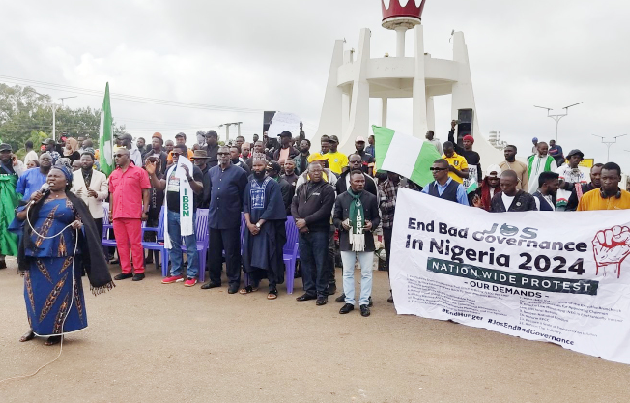The ‘End Bad Governance’ protests that swept through Nigeria has rear it ugly head as the Kano troubling narrative has emerged over the plight of children who have gone missing amid the chaos. The protests, initially peaceful and aimed at decrying hunger, economic hardship, and perceived governmental failures, have inadvertently led to a situation where several young individuals have become lost in the turmoil.
This revelation is coming amid the reconciliation of minors initially held hostage by the Federal government of Nigeria and charged with mutiny and an attempt to overthrow the government of President Bola Tinubu.
As reported by local authorities and community leaders, the protests, which began in early August, saw significant gatherings of people, especially youths, demanding change from bad government. However, the situation deteriorated when some of the protests turned violent, leading to widespread disruption, including the looting of warehouses and confrontations with law enforcement. It is within this backdrop that the issue of missing children has come to light.
During the peak of these protests, several parents and guardians reported their children missing. Governor Abba Yusuf, in response to the escalating situation, declared a curfew to curb the violence, but this also meant some families were separated in the confusion. The exact number of missing children remains unclear, but community leaders estimate that over 50 children were unaccounted for in the immediate aftermath of the protests. The Kano State Government has since initiated efforts to locate these children, with the Ministry of Women Affairs expressing deep concern over their welfare
The government’s response has been multifaceted. A Judicial Commission of Inquiry was established not only to investigate the violence and property destruction but also to look into the disappearances, aiming to identify and prosecute those who might have exploited the chaos. Governor Yusuf has pledged to ensure that those responsible face justice, emphasizing the state’s commitment to child
Furthermore, there have been concerted efforts to reunite families. On November 21, 76 minors who were detained during the protests were handed back to their parents after legal proceedings were dropped, highlighting the government’s acknowledgment of the youth’s involvement in what was largely a cry for better governance
Read also: Burden of oil exploration, need to save Isoko Nation from extinction
The incident has sparked a broader discussion on child safety during public disturbances. Critics argue that while the right to protest is fundamental, the safety of vulnerable groups like children must be a priority. There have been calls for better organization of protests, ensuring safe zones or designated areas where families can remain together or be easily located if separated.
The Nigerian Patriotic Front Movement, which was instrumental in organizing the protests, had initially vowed to sustain demonstrations until August 10, aiming for significant governmental change. However, the unintended consequence of children going missing has led to a reevaluation of protest strategies to incorporate child safety
Community leaders and organizations have stepped up, offering support to families of the missing children. Local radio stations have broadcasted appeals for information, and social media platforms have become crucial in spreading awareness. The community’s response shows a collective responsibility towards the youth, emphasizing the need for systemic changes in how protests are managed to prevent such occurrences in the future.
The ‘End Bad Governance’ movement in Kano, while highlighting severe socio-economic issues, has also revealed the fragility of child protection mechanisms during civil unrest. As the city moves towards healing and recovery, the focus remains on not only addressing the root causes of the protests but also ensuring that no child is left behind in the quest for societal improvement. The government, alongside NGOs and community groups, continues to work tirelessly towards reuniting families, offering a poignant reminder of the human cost that often accompanies calls for political change.






